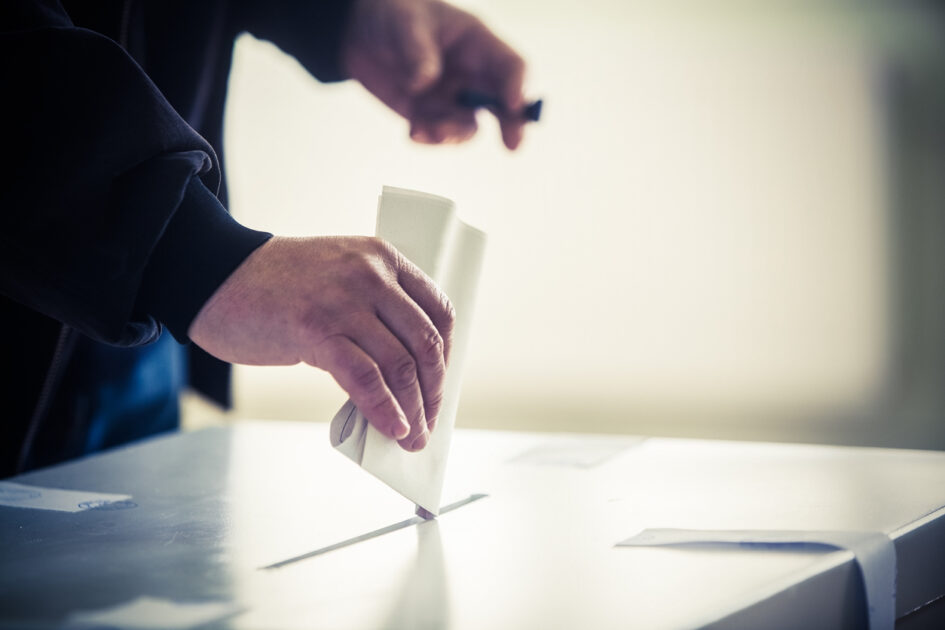SpunOut.ie’s Executive Director on why we need to lower the voting age
Ian talks about why it’s important for 16 and 17 year olds to be able to vote

Ian Power is president of the National Youth Council of Ireland and executive director of SpunOut.ie
In politics as in the rest of life, cynicism and apathy reward one another. This is never truer than in a democracy, where citizens’ rights to have our say and be heard should be the firm bedrock on which our society is built.
But once we begin to lose faith in the idea that our voice has any meaning within the system, our belief in the essential value of that system must surely begin to drain away. We are seeing this process play out before our eyes all over the globe: whether in Italy or France, the UK or the US, old political norms are breaking down as voters react to feelings of powerlessness and detachment from what seems an increasingly distant political elite.
Against this backdrop of an ‘anti-politics’ revolt around the world, some of last week’s commentary in the Seanad ‘Votes at 16’ debate was especially disappointing, short-sighted, and out-of-step with the evolving needs of our democracy.
Despite commendable support from Opposition senators and an enthusiastic, youth-led campaign, members of the upper house voted to reject the proposal which would have extended the vote to 16- and 17-year-olds in next year’s local and European elections. The bill’s defeat was decided by the Government but enabled by the abstention of Fianna Fáil, despite that party’s on-the-record support for the policy in their 2016 general election manifesto.
Yet it was the commentary of Independent senator Marie-Louise O’Donnell which in many ways articulated the spirit in which the proposal was shot down. Senator O’Donnell’s patronising contention was that young people should “stay away from politics”. This, of course, is making the big assumption that if young people turn away from an active role in society, politics will stay away from them, too.
Senator O’Donnell also spoke of the need for the Seanad to think and act “in the common good”, but of course it is from the collective (if sometimes indirect) authority of the voting public that TDs’ and senators’ authority is ultimately drawn. Democratic politics is based on the principle of representation, and no politician, however high-minded or far-sighted, can represent a section of society which has been denied the right to vote.
Surely no-one has a more legitimate interest in the future of our country than those who will, after all, have to live in it the longest? And yet political decisions on long-term issues of economic inequality, climate change and so much more that will affect today’s 16-year-olds for the better part of a century, are being made today in a manner that wilfully excludes their input. These are a group we are happy to tax and charge, to employ and convict as adults; and yet calls for their equal representation in the voting population are so often met with disinterest or ridicule.
Determined opponents of the vote at 16 often resort to glib comparisons with allowing young children or infants to vote. If we lower the age to 16, they wonder aloud, why not 14? Or twelve? Why have a voting age at all? At first glance, there is a straightforward logic to this: few would disagree that there must be a line in the sand to separate children from the rights and responsibilities of adulthood. But it is that very logic that wholly undermines the case for the status quo.
All throughout the relatively short history of modern democracy, the ‘proper’ boundary between who may vote and who may not has been shifting to keep up, belatedly, with our evolving view of which persons constitute a citizen. Fundamentally there is no argument against the vote at 16 that was not once deployed against opening the franchise to 18- or 21-year-olds, against women or Catholics or the working class. Indeed, the very concept of electoral democracy was once derided as ‘mob rule’: by allowing people a say in how their country is run, the logic goes, you hand the reins of power to a group too disparate, too changeable, too immature to be entrusted with such responsibility.
The time is coming for our politicians to realise that 16- and 17-year-olds can and should be trusted, just as 18- and 19- and 20-year-olds were before them. It has never been more important to strengthen and solidify the value we place on civic engagement. The earlier in life a person begins to vote, the more likely she or he will turn it into a lifelong habit. The more input young people have into the system, the more likely our politicians are to raise and debate the issues that will define their future – and thus the more likely those young people are to have faith their future truly is in their hands.
Ireland is one of very, very few countries which can point to a continuous democratic tradition dating back to 1918. Those who fought and died for our independence, often young men and women themselves, did so in the spirit of expanding democratic accountability and returning political power to a people for whom the system had lost its basic legitimacy.
Now, on the centenary of the first women getting the vote in Ireland, those who have opposed voting rights for younger citizens should think long and hard about the message they wish to send, not just to the 126,000 future voters who had their rights delayed last Wednesday, but to the many inheritors of our democracy yet to come. The basic questions, after all, are the same as ever: whose voice matters? Whose voice doesn’t? And how, and how quickly, can we address the gap between those two answers?






